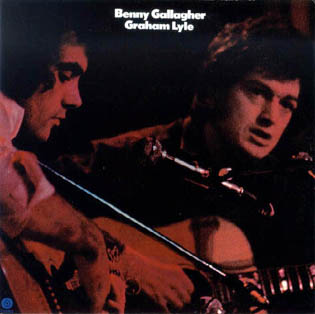 Break of Dawn (1982)
Break of Dawn (1982)Jock Bartley was the only original member who hadn't quit the band.
Bartley were suggested with John Sambataro and Chuck Kirkpatrick. Sambataro was a versatile Miami based singer / guitarist / keyboardist / songwriter who sang on record with Stills, Clapton, Dave Mason, McGuinn, Clark & Hillman among others. John and Jock had actually met back in '78 when they both played on the Criteria sessions for Andy Gibb's platinum album, Shadow Dancing. Kirkpatrick was a local
Miami singer / guitarist who sang with Johnny on a number of the aforementioned sessions and had worked as an engineer. Albert then talked to Alan Jacobi, a Miami entertainment lawyer who had a relationship with Atlantic; Jacobi convinced the label to help fund Firefall's rekindling. Atlantic sprung for some new demos, which led to a new album deal and the spring of 1982 Criteria sessions for the Break of Dawn album, with Ron and brother Howard producing once again. Backing Bartley, Sambataro and Kirkpatrick were an number of Miami session players. The album featured special appearance by Stephen Stills (vocals, guitars, piano), David Sanborn (alto sax), plus former band mates Rick Roberts (additional background vocals) and David Muse (flute, harmonica and vocoder). The first single, the power ballad Always penned by Sambataro and frequent collaborator Paul Crosta, hit the airwaves in late January '83 - two years after the band's last single. Always topped local charts in several markets around the country, but nationally didn't quite break the Top 40. The album, out in March, made few industry waves.
 Mirror of the World (1983)
Mirror of the World (1983)The new Firefall nonetheless got the go-ahead to record another LP - and fast. Adding Scott Kirkpatrick, Chuck's brother on drums and backing vocals, and Colorado bassist, Greg Overton, the group cut their seventh studio album, Mirror of the World named after Bartley's song about the effects of violent TV on children. The album had a much harder edge than it's predecessors, which many programmers thought reflected too great a departure from the classic Firefall sound. Though the first single, the rockin' 'Runaway Love,' written by Bartley, Sambataro and Crosta, briefly appeared in video on MTV and received only limited radio airplay, Mirror of the World quickly disappeared.
 Messenger (1994)
Messenger (1994)While touring the Midwest in 1993, Firefall encountered first hand the early devastation of the terrible Flood of '93. In cities like Alton, Illinois, Des Moines, Iowa and St. Louis, the band felt the tragedy and overwhelming impact of the flood. One of their gigs was canceled and a few had to be moved back from danger. The night they returned home to Colorado, a song woke Jock up at 4:00 AM - he sat up in bed in the dark
with the hook playing in his head. Getting up, he hurried into his music room and, twenty minutes later, When The River Rises was finished. It is a uplifting song with a positive message of gaining strength in adversity. The next day, Steven, Bil and Steve joined him to work out the intricate harmonies. Two days later, the band recorded the song in Colorado Springs at Startsong Recording Studio, with engineer / programmer, Tom Gregor, co-producing the song with Bartley. Five days after it was written, 'When The River Rises' was played on the radio for the first time. The flood waters had not yet crested. Vowing to give a large portion of the publishing to Flood Relief, the song was sent to numerous radio stations in a dozen flooded states. Soon it was receiving heavy regional airplay and was used by CNN and other TV networks and stations behind coverage of the disaster.
The band parlayed the attention that 'River' brought to Firefall into the search for a new record deal. Many smaller companies showed interest but no major labels. They decided to go with a Colorado independent label, Redstone Records, who'd had a few impressive successes in the smooth jazz genre. Though Redstone might be out of their league trying to break a band in the piranha tank of rock and pop. Messenger was recorded in Denver and Boulder and was released in mid 1994. Bartley had been writing songs for ten years for just this opportunity. Along with the hard edged When The River Rises and Secret his songs Love Find A Way Very First Moment and Who Ran Away gave the album a familiar but updated Firefall sound. Bil Hopkins' classy song, Say It's Over and Steve Manshel's powerful Innocent Victim gave depth to the CD. Bartley, Weinmeister, Hopkins, Ficca and Manshel played and sang on the entire CD, with Clawson and Waddell adding most of the keyboards, sax and flute. Mark Andes and Richie Furay made guest appearances on the sessions.. The album was critically acclaimed as their best record since the early days of Firefall and gave the group a new touring impetus.
See Richie Furay - Part 3.
 Recently, both Firefall and Jock Bartley has new CD's out.
Recently, both Firefall and Jock Bartley has new CD's out.Firefall - Acoustic Colorado To Liverpool
Jock Bartley - Blindsight
































 The early-'60s bluegrass group the
The early-'60s bluegrass group the 









.JPG)
%20@320.jpg)

